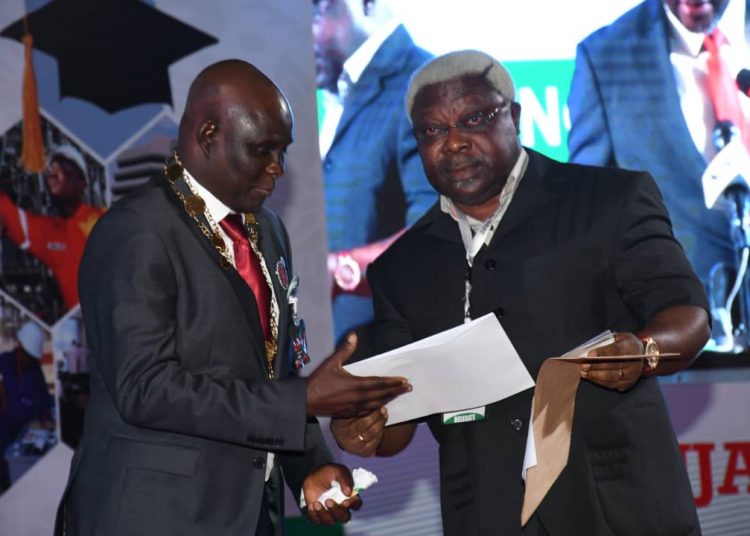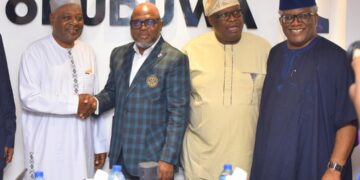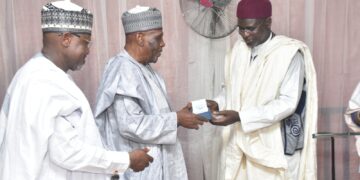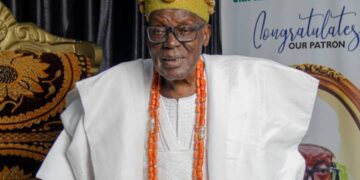Former deputy governor of Osun state, Engineer Iyiola Omisore has stated that it will require N36 Trillion annually over
the next 30 years to bridge
infrastructure gap in Nigeria.
Senator Omisore stated this on Monday while presenting a paper entitled “Nigeria Society of Engineers Budget Performance & Projects Monitoring Working Group (NSE-BPPMWG) attributed Nigeria’s Infrastructure Deficit mainly to “epileptic power, near absence of rail, non – motorable roads, poorly developed seaports and airports, absence of water supply, etc..
Emphasizing that it will “requires N36 Trillion annually over the next 30 years to bridge infrastructure gap; Senator Omisore stressed that meticulous Monitoring, Evaluation
and Learning (MEL) required; adding, ” NSE’s expertise can handle independent MEL for infrastructure delivery in Nigeria”.
Senator Omisore stressed that there is the need for provision of quality service to enhance professional competence &
membership development;Collaboration with, influencing and providing quality advice to Government, Industry, Commerce, academia and the Society, for uplifting Nigeria; Meaningful contributions to the
advancement of technology, locally and globally.
On budgetary challenges, Senator Omisore pointed out that with the “low allocation for Capital Expenditure (27.2% of 2021 proposed budget) and high allocation for Recurrent Expenditure;High debt service ratio (about 27% for 2021 proposed budget); Low budget implementation levels (average of 40-50%); absence of Project Management and budget Implementation Monitoring;, “NSE is well endowed with the resources to monitor budget implementation independently.
Commenting on the NSE’s mission, Senator Omisore stressed that the body is expected to “provide monthly reports on status of projects financed by public funds; be responsible to the Nigerian public; be independent of government influence and interference as well as operate as an umbrella body for NGOs/CSOs in providing value addition to infrastructure planning and delivery in Nigeria
The former deputy governor stated further that, “given the vast expertise within the NSE, the project will be implemented solely by NSE across the country;” and that “using recent Appropriation Acts, the NSE will establish the average budget implementation ratio, identify variances and then set out to support the FG to improve on its current performance;”.
“Funding (grants) will be sourced externally from Multi-lateral funding agencies (AfDB, World Bank, AFD) and International Development Agencies (DFID, USAID, ); The NSE shall galvanise its Local Branches and Divisions to ensure the success of NSE-BPPMWG; NSE Branches and Divisions shall develop detailed Programme Implementation Plans (PIP) showing measurable milestones, impacts and timelines.”
“It is imperative that the Programme implementation begins immediately given the urgency and critical importance of budget and infrastructure development to Nigeria’s economic advancement”
.













